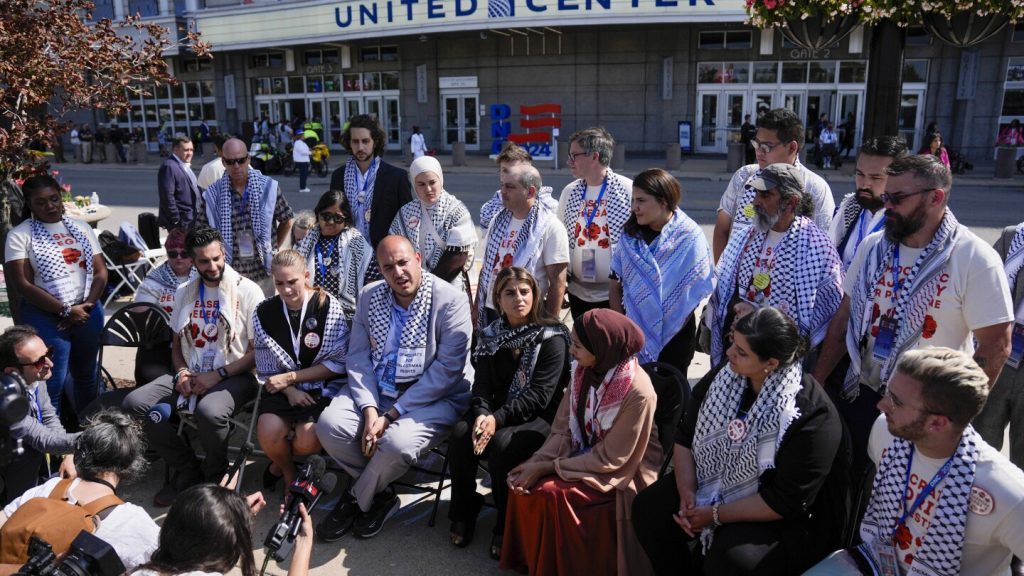In recent months, Palestinian Americans have been dealing with the emotional toll of the conflict in Gaza and the US government’s support for Israel. Many have organized, protested, and lobbied against the violence, but now they face a dilemma in the upcoming US election. With frustrations rising, some are struggling to support the Democratic ticket due to perceived lack of policy change and representation for Palestinian voices.
One Palestinian American, Samia Assed, felt hopeful when Kamala Harris became Vice President, but that hope was shattered during the Democratic National Convention where a request for a Palestinian American speaker was denied. Another Palestinian American, Ghada Elnajjar, who campaigned for Biden in 2020, feels betrayed and neglected by the lack of policy change toward Israel. Despite looking for signals of change, Elnajjar is prepared to remain uncommitted in the upcoming election.
The Uncommitted National Movement, led by Layla Elabed, is advocating for policy change within the Democratic Party, pushing back against US support for Israel. Harris, in her DNC speech, maintained support for Israel while acknowledging the suffering of Palestinians in Gaza. Activists are calling for a permanent cease-fire and an embargo on US weapons to Israel. The ongoing conflict has left many Palestinian Americans conflicted about their voting choices.
At an August rally in Michigan, tensions were evident as protesters interrupted Harris, expressing their refusal to support genocide. While some argue that withholding votes from Harris could benefit Trump, others believe it is the Democratic Party’s responsibility to earn their support. Muslim American advocacy group Emgage Action is working to mobilize the Muslim community to vote collectively, recognizing their power in influencing the election.
According to a Pew Research Center survey, most US Muslim voters identify with or lean toward the Democratic party, with a majority expressing sympathy towards the Palestinian people. Muslim voters, like other groups, are not a monolithic voting bloc, with some publicly supporting Harris. Both the Harris and Trump campaigns are making efforts to reach out to Palestinian, Arab, and Muslim Americans, but the lack of concrete policy changes remains a point of contention for anti-war voters.
The upcoming US election poses a challenge for Palestinian Americans who are grappling with their voting decisions in light of the ongoing conflict in Gaza. While some feel betrayed by the lack of policy change and representation, others are mobilizing to collectively leverage their voting power. The unresolved tensions between US policies towards Israel and Palestinian suffering continue to shape the political landscape for Palestinian Americans leading up to the election.















